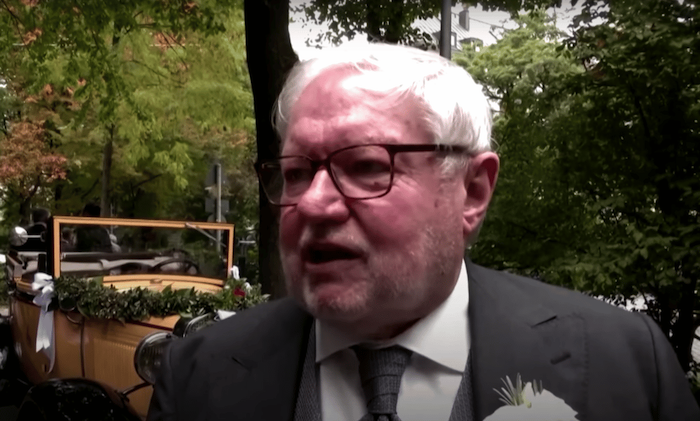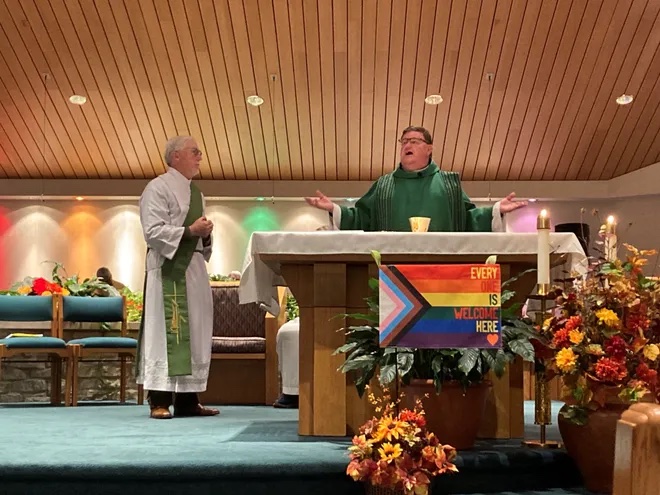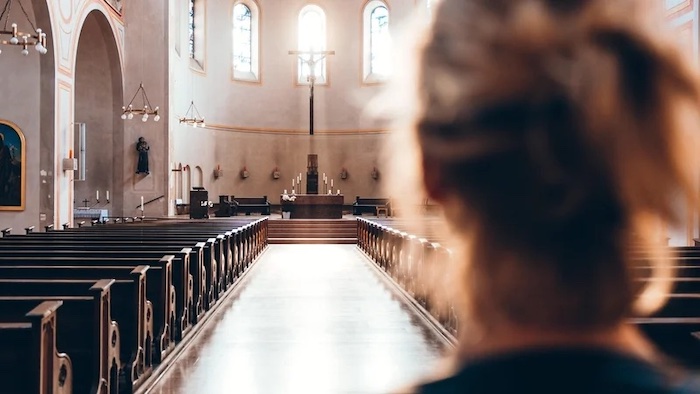
Anselm Bilgri, a former gay monk who left the Roman Catholic Church, says he would like same-sex marriages to “become normal” by marrying his longtime partner. (YouTube/Reuters)
Anselm Bilgri, a former gay monk who left the Roman Catholic Church, married his longtime partner in a beautiful ceremony.
Bilgri was ordained in 1980 by Joseph Ratzinger, who became Pope Benedict XVI in 2005 and served as head of the Roman Catholic Church until February 2013. He was a Benedictine monk for decades.
Bilgri, now 68, left the Catholic Church in 2020 because he was frustrated with the Church’s inability to keep up with the times due to its stance on same-sex marriage. He was also among several figures who left the Catholic Church in Germany following abuse scandals.
Bilgri married partner Markus Achter, 41, in a beautiful ceremony in a Munich church on October 8 by a priest from the Old Catholic Church. The Old Catholic Church allows priests to marry and approves same-sex relationships.
The couple say Reuters that they hoped their marriage would help normalize LGBTQ+ relationships and same-sex marriages.
“I immediately thought: now I have actually received the seven sacraments, from ordination to marriage,” Bilgri said. “And I would like it to become normal.”
He continued, “It goes without saying that two men, two women… It doesn’t always have to have a sexual connotation.
“Maybe they just want to support and help each other. People who want to belong together, which is also a form of love, let that become normal and possible.
Bilgri ran the brewery of a Munich monastery before becoming the prior of Andechs Abbey, where Benedictine monks have worked and prayed on Bavaria’s “holy mountain” for hundreds of years.
The former gay monk converted to the Old Catholic Church and serves as a priest in the community in Germany
Achter thought their marriage was a “very big sign” that same-sex marriages were “becoming more normal”.
“I think that’s a really big sign and it’s also becoming more normal because you often think it’s not extraordinary when you live in an environment like Munich,” Achter said. “But it’s not that normal, and it’s still something extraordinary when two men get married.”
Achter continued, “And I always think that if it becomes more and more obvious, then at some point it won’t be something special anymore.
“And that’s where we actually want to go and maybe we put a sign for that today.”
Pope Francis ended all hope of same-sex marriages in the Catholic Church when he declared in 2021 that the Church “has no power to change the sacraments”.
“I spoke about it clearly, didn’t I? said Francois. “Marriage is a sacrament. Marriage is a sacrament. The church does not have the power to change the sacraments. It is as our Lord has established.
In September, a group of Roman Catholic bishops from Belgium challenged the Vatican and allowed same-sex union blessings. The Flemish bishops said the blessing – which includes a ritual of prayers and a pledge by the couple to be faithful to each other – is part of a “welcoming church that excludes no one”.
Complete Article ↪HERE↩!




